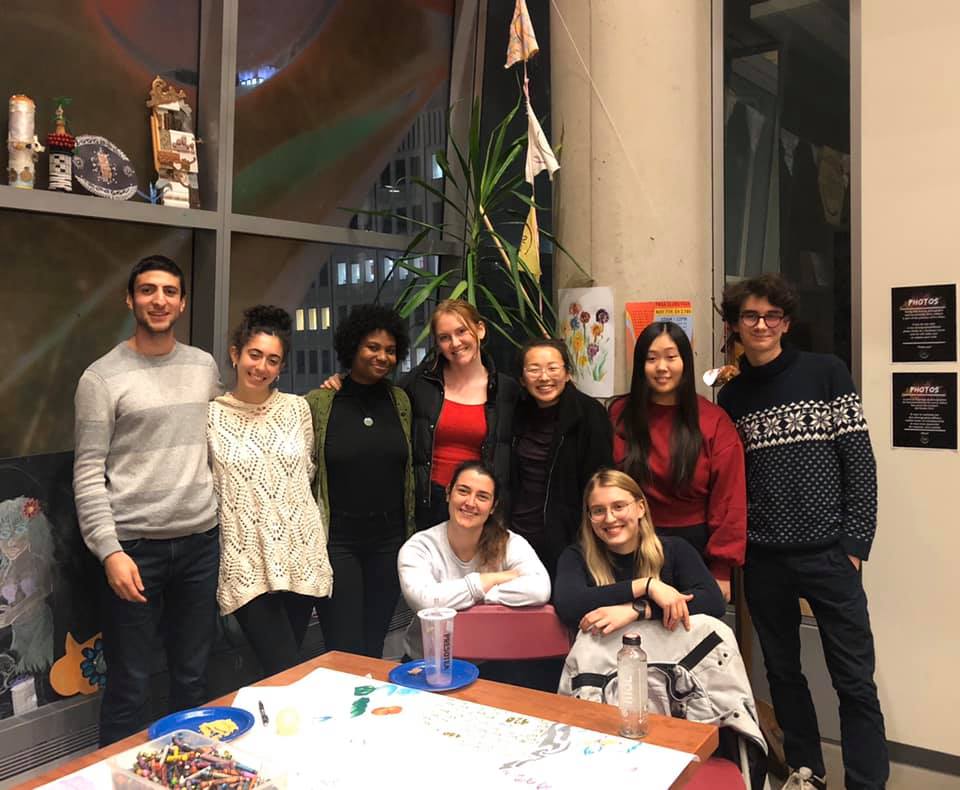Over a year after the national legalization of cannabis, Quebec is raising the legal age to 21, a decision poised to directly impact students. On Nov. 20, Voxcann, a cannabis education initiative by the nonprofit Groupe de recherche et d’intervention psychosociale (GRIP), and the Canadian Students for Sensible Drug Policy’s (CSSDP) Concordia and McGill chapters collaborated to host a cannabis roundtable at the Concordia Art Hive. The event aimed to promote candid conversation about student cannabis use from a medical and social standpoint. A mix of Concordia and McGill students discussed their experiences with cannabis, the changes brought about by legalization, and upcoming reforms to legislation.
The roundtable was a natural partnership between Voxcann and CSSDP. Coco Wang, the director of development for Voxcann, explained the group’s mission.
“Our focus is […] youth empowerment [on] the topic of cannabis education and policy, because that’s what we at Voxcann think is lacking in the current [cannabis scene].” Wang said.
Similarly, CSSDP’s McGill chapter aims to give voice to student concerns about national drug policy.
“Our goal is to mobilize young people to participate in the political process at all levels [to advocate] for sensible drug policies that aim to reduce harm and […] reflect […] research,” Gabriel Aboutoul, a CSSDP representative, said.
Both groups focus on harm reduction and approaching drug use as an issue of public health and human rights rather than criminal justice.
Discussion first turned to where students get information about cannabis, and whether that information is likely to be accurate. Many participants got their information anecdotally and discussed the inherent limitations to this lack of objectivity. One participant discussed their work at the Société québécoise du cannabis (SQDC) and the restrictions on what information vendors can disclose to customers.
Legalization has paved the way for more accessible information about the technicalities of cannabis. For example, it has facilitated emerging research about the psychoactive effects of different terpenes, the scent compounds in cannabis that define certain strains.
The conversation then turned to the positive and negative effects of cannabis use. Though for some people, weed can alleviate symptoms of mental illness with fewer side effects than medication, while it can exacerbate these issues in others. Despite this, legalization has allowed these individuals to try cannabis in a more controlled environment and learn how it affects them through experience.
The group also discussed the degree to which cannabis has changed post-legalization. The roundtable recognized the intersections of racial and class privilege. For those in positions of privilege, weed use has always been safer, given the disproportionate rates of cannabis-related incarceration in poor, homeless, and racialized youth, specifically young black men.
Finally, the facilitator highlighted the changes in cannabis legislation that will take effect in 2020. In late October, the Coalition Avenir Québec (CAQ) government passed a law that will raise the legal age to purchase cannabis within the province from 18 to 21. The change in legislation aims to protect teenagers, a group that lawmakers fear is especially vulnerable to dependency. However, opponents contend that the legislation is both unfair and potentially harmful, since it creates a second class of adults aged 18 to 21 who will likely resort to illegal methods of obtaining cannabis.
The roundtable agreed that these changes are both confusing, given that the legal age to purchase alcohol will remain 18, and harmful to those who had access to legal cannabis granted and quickly revoked. Though the change is likely due to concerns about stunting brain development, the table concluded that the decision to revoke a right that had already been granted and that in fact promoted safer use, was a misstep. By re-criminalizing use that will likely continue after the change, the Quebec government could endanger teens who will naturally seek to experiment.









